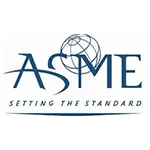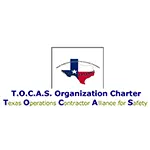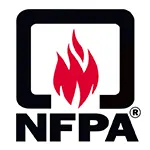April Membership Special
3-years for $100
Just buy a Single User Membership and your $100 gets you three (3) years of access instead of one (1) year
CLICK HERE to Renew your Membership
CLICK HERE for a NEW Membership
CLICK HERE to see eligibility requirements for FREE Membership
If you have any questions, please contact me
SAFTENG has:
- Over 18,000 categorized unsafe acts/conditions and accident/injury photos
- Over 1,500 ppt's & doc's in the SAFTENG Library
- Over 4,000 Technical Articles on Process Safety, Emergency Response & OSH topics
- Over 450 videos (those not allowed on YouTube Channel)
Many THANKS to my NEW Members and those who CONTINUE to support SAFTENG:














May 4, 2024
On October 16, 2023, Employee #1 worked for a construction gas & oil support contractor. Coworkers were cutting and welding an eye-lifting plate on a compressor skid.
Miscellaneous petroleum products had been allowed to accumulate on, in, and around the compressor skid area, creating a fire hazard.
…
HomeRead More »
Read More
May 2, 2024
It is good that we are finding fewer and fewer facilities without pressure testing and leak testing records on their process piping. But now comes the difficult question: Is pressure and leak testing required after maintenance or alterations on piping systems? So, most companies will have their newly installed piping pressure tested and leak tested by the contractor who performed the installation. ...
Read More
May 2, 2024
Six people were confirmed dead in a boiler explosion at a wood factory in the southern province of Dong Nai on May 1, 2024. The accident also injured five others. The provincial People’s Committee has offered condolences and financial support to the victims’ families (20 million VND or 789 USD for each fatality and 10 million VND for each injury). The incident occurred at around 8:30...
Read More
May 2, 2024
In the world of industrial safety, we are not at a loss for the desire to try new things. Many consulting companies are waiting to sell us their shiny gadgets. One of these latest crazes is called “SIF”—Serious Injuries and Fatalities. The concept behind this model is based on the progress many have made in reducing their recordable injuries of lesser severity; however, the risk of a significant...
Read More
May 2, 2024
Ammonia is held for sale by a retailer in a large storage tank. The retailer sells ammonia as an agricultural fertilizer and a coolant for air conditioning systems. Section 311(e)(5) of EPCRA exempts from the definition of a hazardous chemical “(a)ny substance to the extent it is used in routine agricultural operations or is a fertilizer held for sale by a retailer to the ultimate...
Read More
May 2, 2024
The Department of Homeland Security’s Chemical Facility Anti-Terrorism Standards (CFATS) impose comprehensive federal security regulations for high-risk chemical facilities. Do the CFATS alter the requirements that apply to a facility covered under both CFATS and either the Emergency Planning and Community Right-to-Know Act (EPCRA) or the Clean Air Act §112(r) (i.e., the Risk Management Program (RMP))?...
Read More
May 2, 2024
The current list of delegated states and counties is:
NOTE: Kentucky, Puerto Rico, and the Virgin Islands no longer implement the program, and the regional office has taken over the implementation of those areas.
…
HomeRead More »
Read More
May 2, 2024
These requirements control the release of hazardous energy while workers service, maintain, or repair machines or equipment when activation, start-up, or release of energy from an energy source is possible; proper control of hazardous energy prevents death or serious injury among these workers.
Energy Control Procedure (paragraph (c)(4)(i))
…
HomeRead More »
Read More
May 1, 2024
UPDATED on 6/6/24 with OFD Run Report and Investigation I have written about the risks associated with wanting to use larger CO2 containers in the restaurant industry. The IFC now has a section on the hazards associated with these larger cylinders. Still, most of the code deals with CO2 leaks causing an oxygen-deficient atmosphere, much like what happened in AZ McDonalds. But there is...
Read More
April 30, 2024
High-hazard Group H occupancy includes, among other things, the use of a building or structure, or a portion thereof, that involves the manufacturing, processing, generation, or storage of materials that constitute a physical or health hazard. Hazardous occupancies are classified in Groups H-1, H-2, H-3, H-4 and H-5. High-hazard Group H-1 buildings and structures that contain materials that pose a...
Read More
April 29, 2024
Much like it is in process safety, the Management of Change (MOC) tool may be the most despised element of an SMS. However, a recent safety assessment with a local client identified the lack of performing an MOC on significant changes to production machinery and rates. The facility is NOT a PSM facility, but they are ISO45001 “certified.” Last year, the facility had four...
Read More
April 29, 2024
Understanding the basics of the ABC model is a MUST for safety professionals, even if your organization is not ready for a formal Behavior Based Safety Process (BBSP). This simple model will enlighten many and help them understand WHY workers and management do what they do. Seasoned safety pros will often focus far too much on the Behaviors and Consequences when, in fact, it is the Activators...
Read More

















